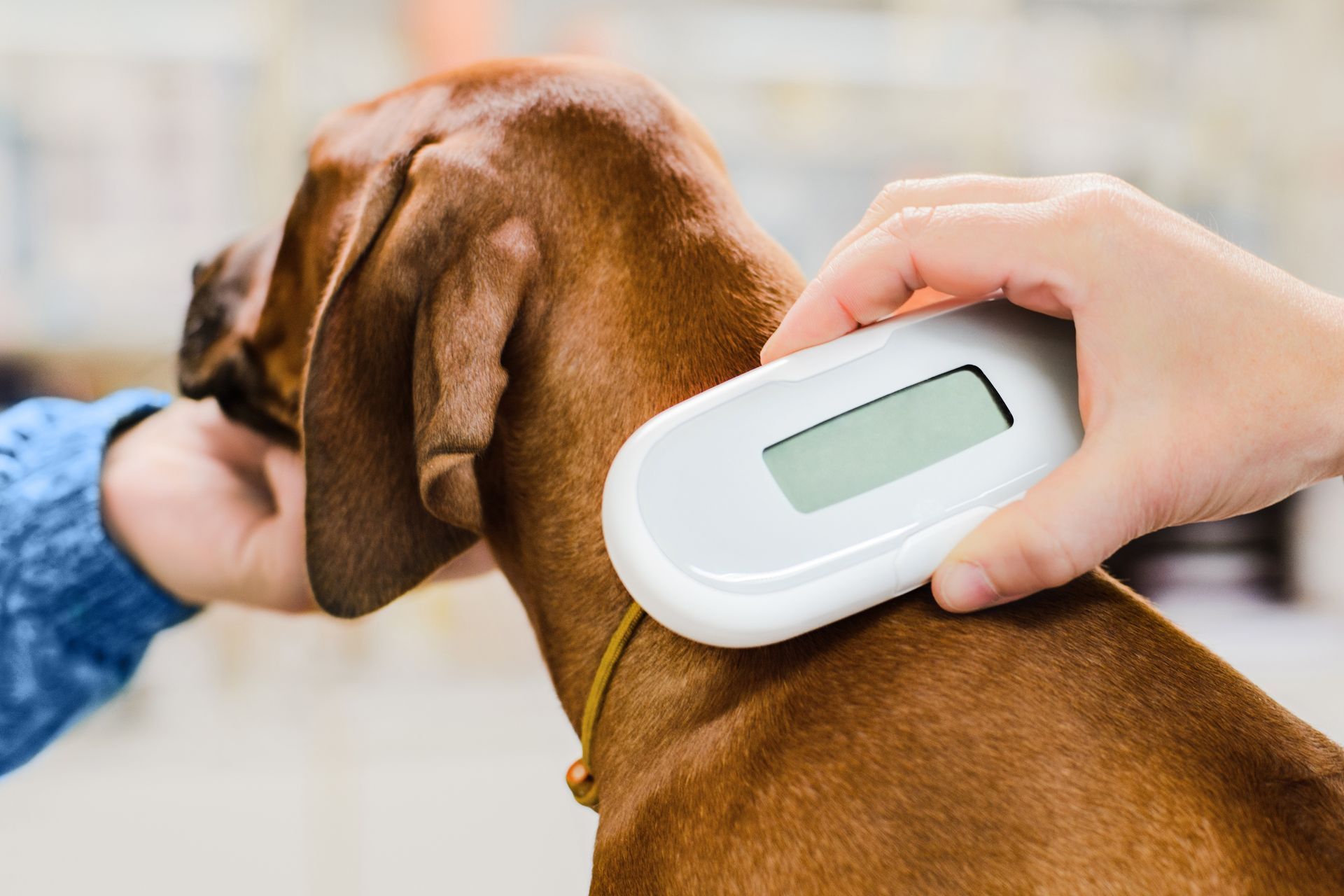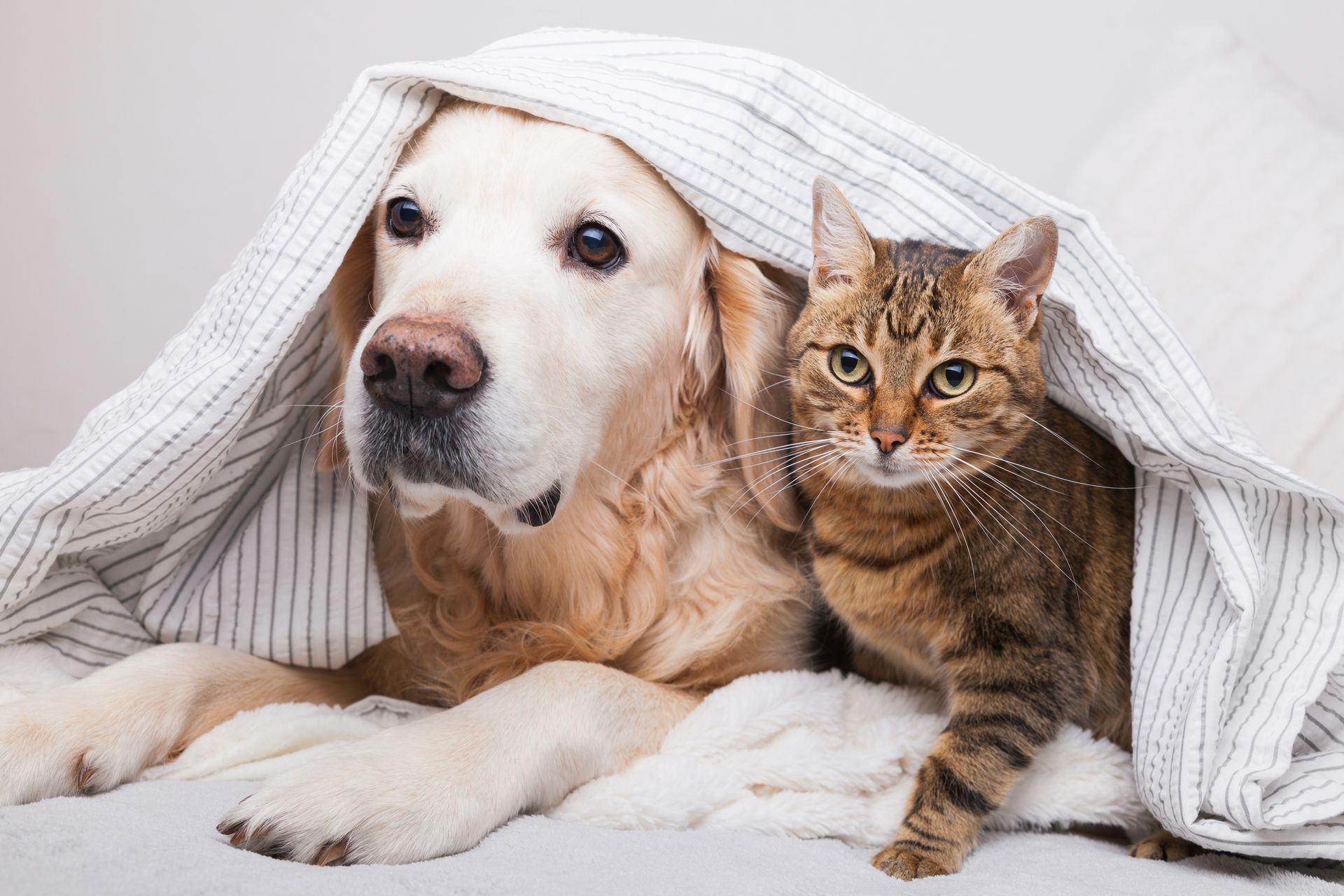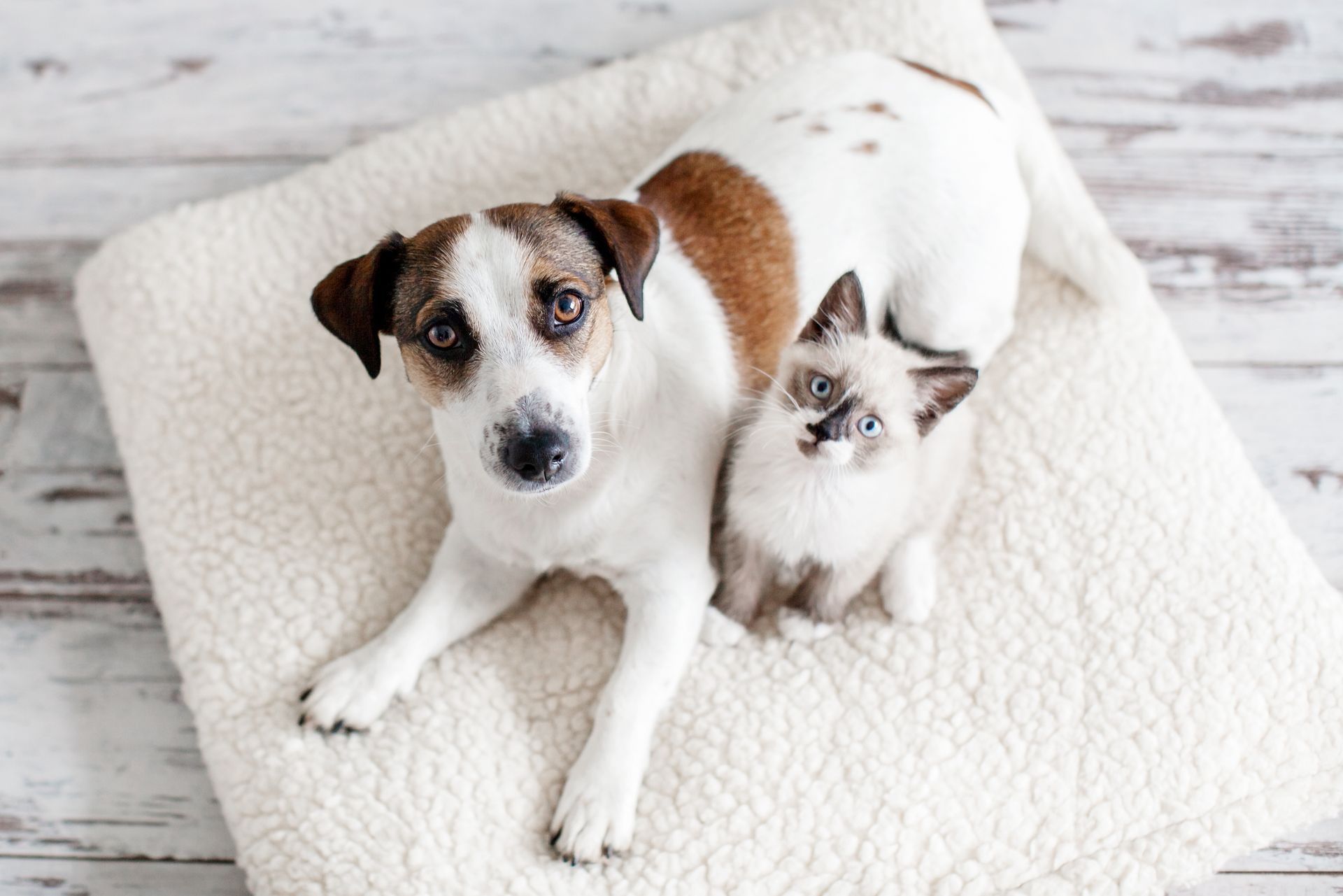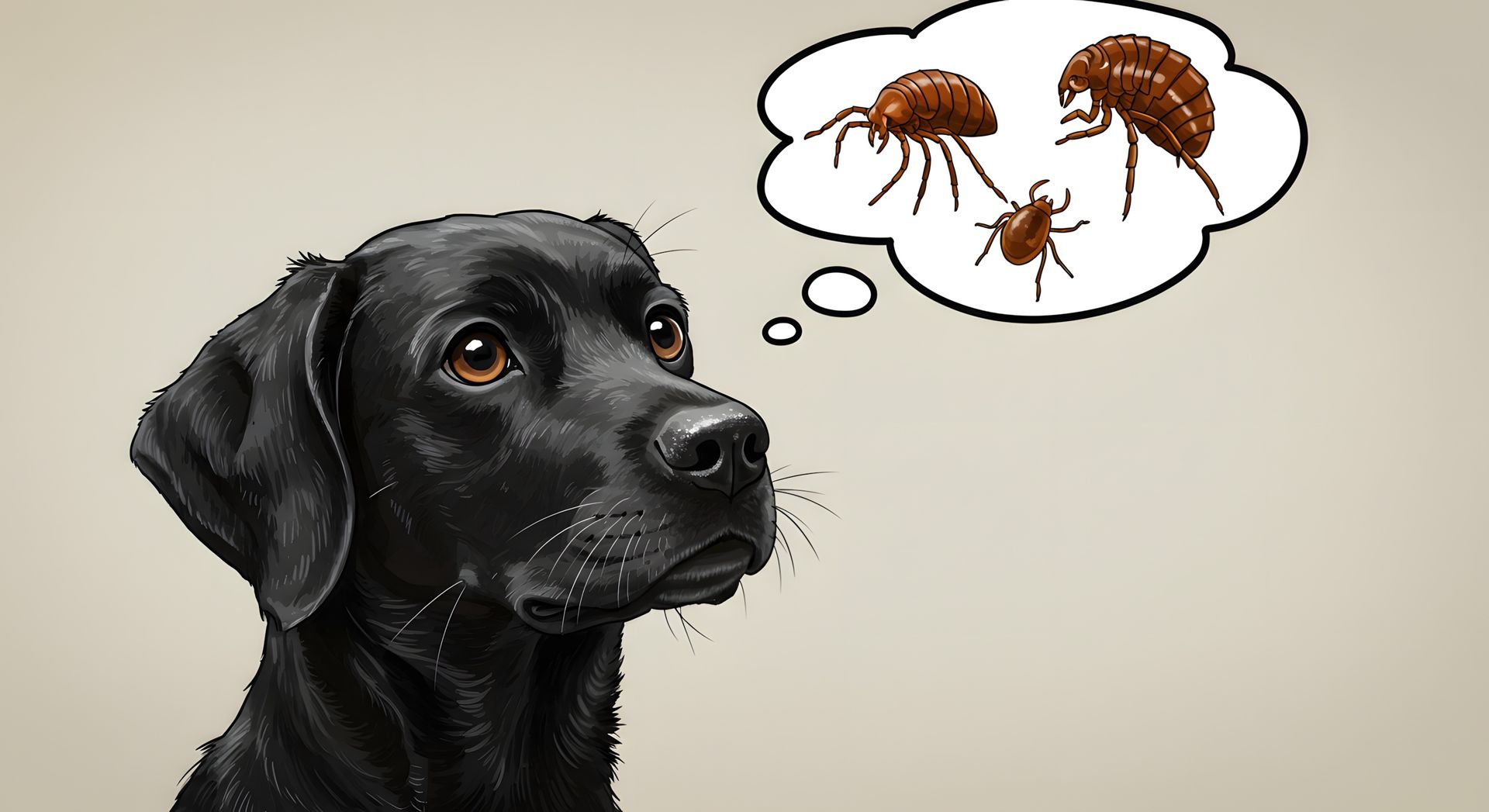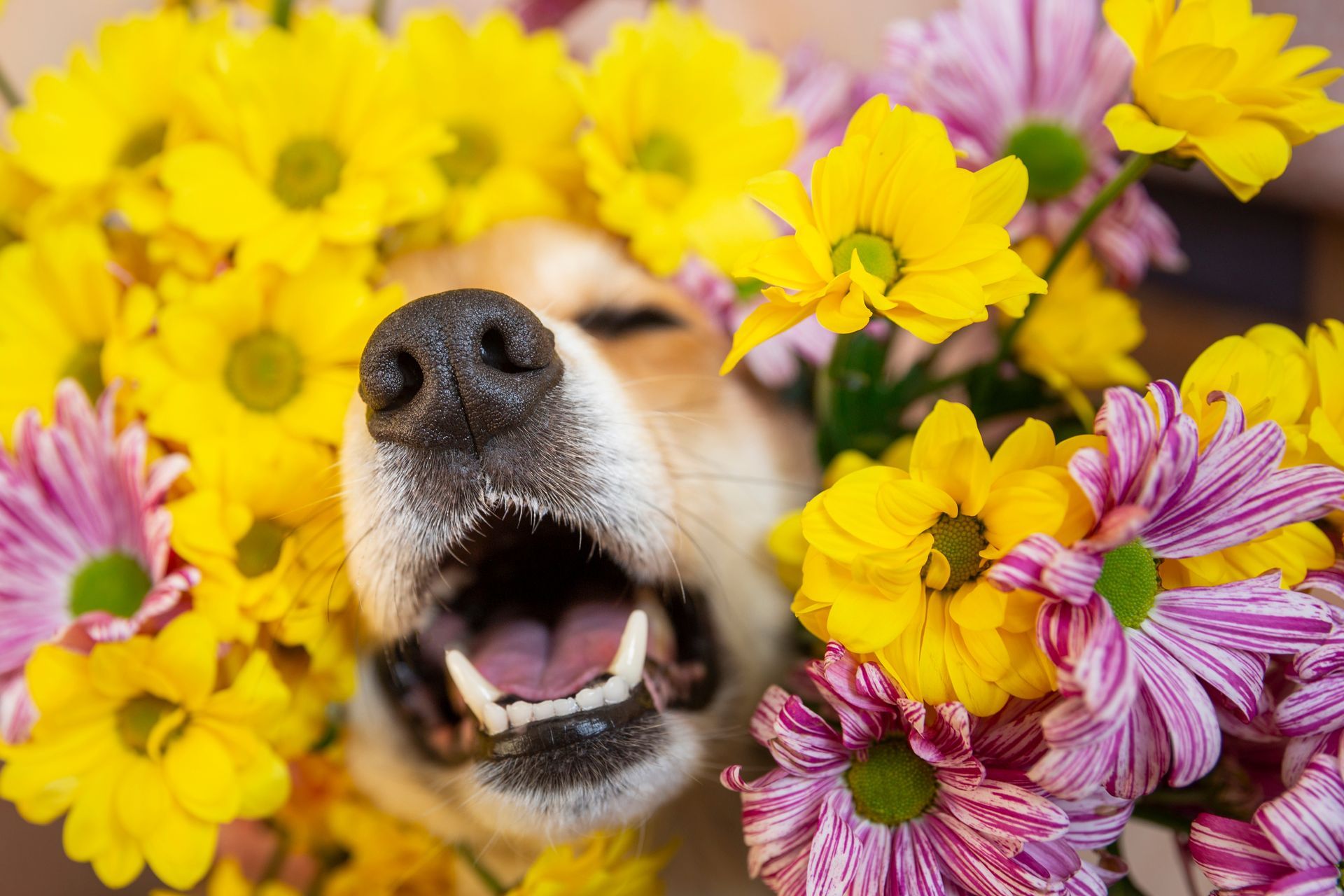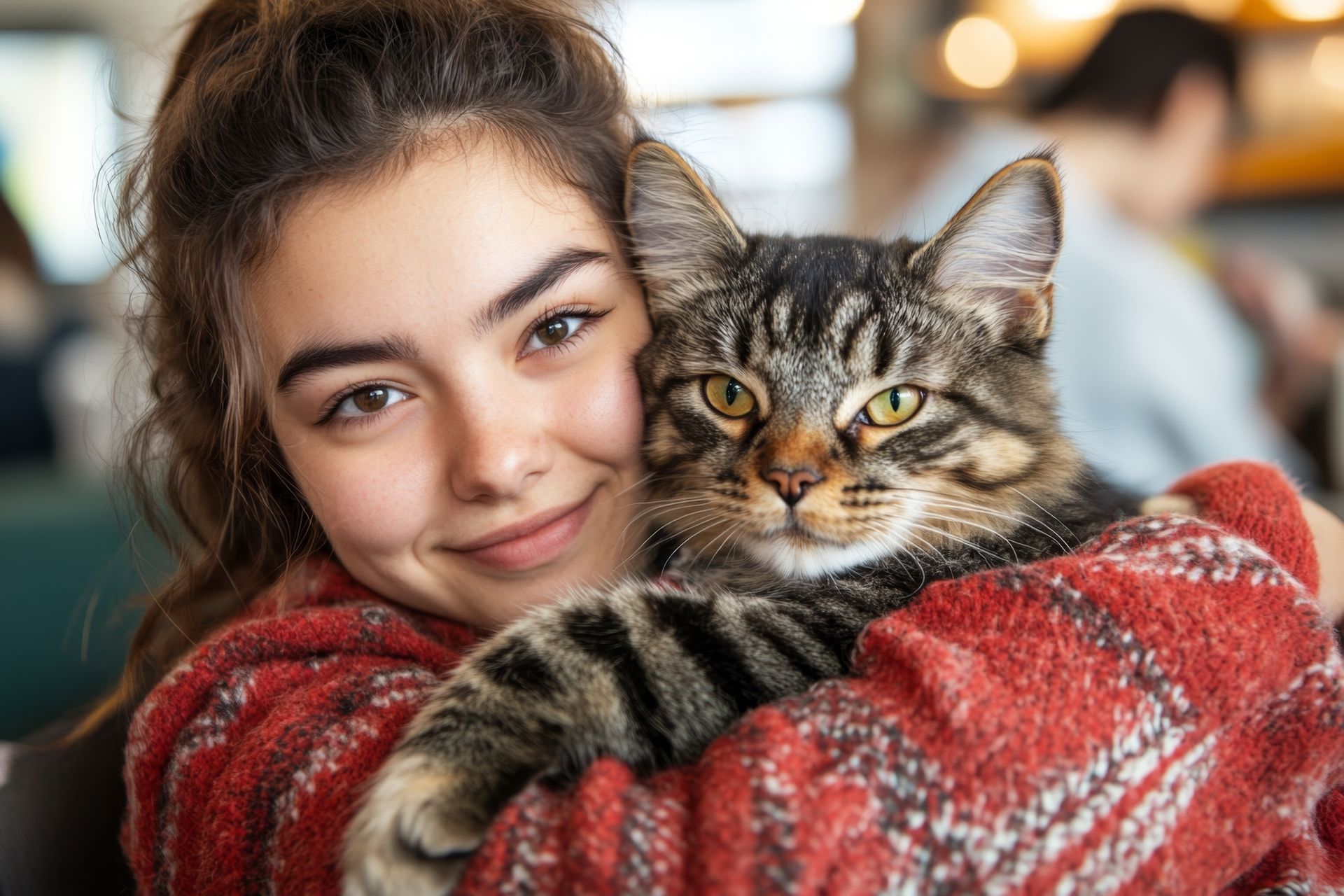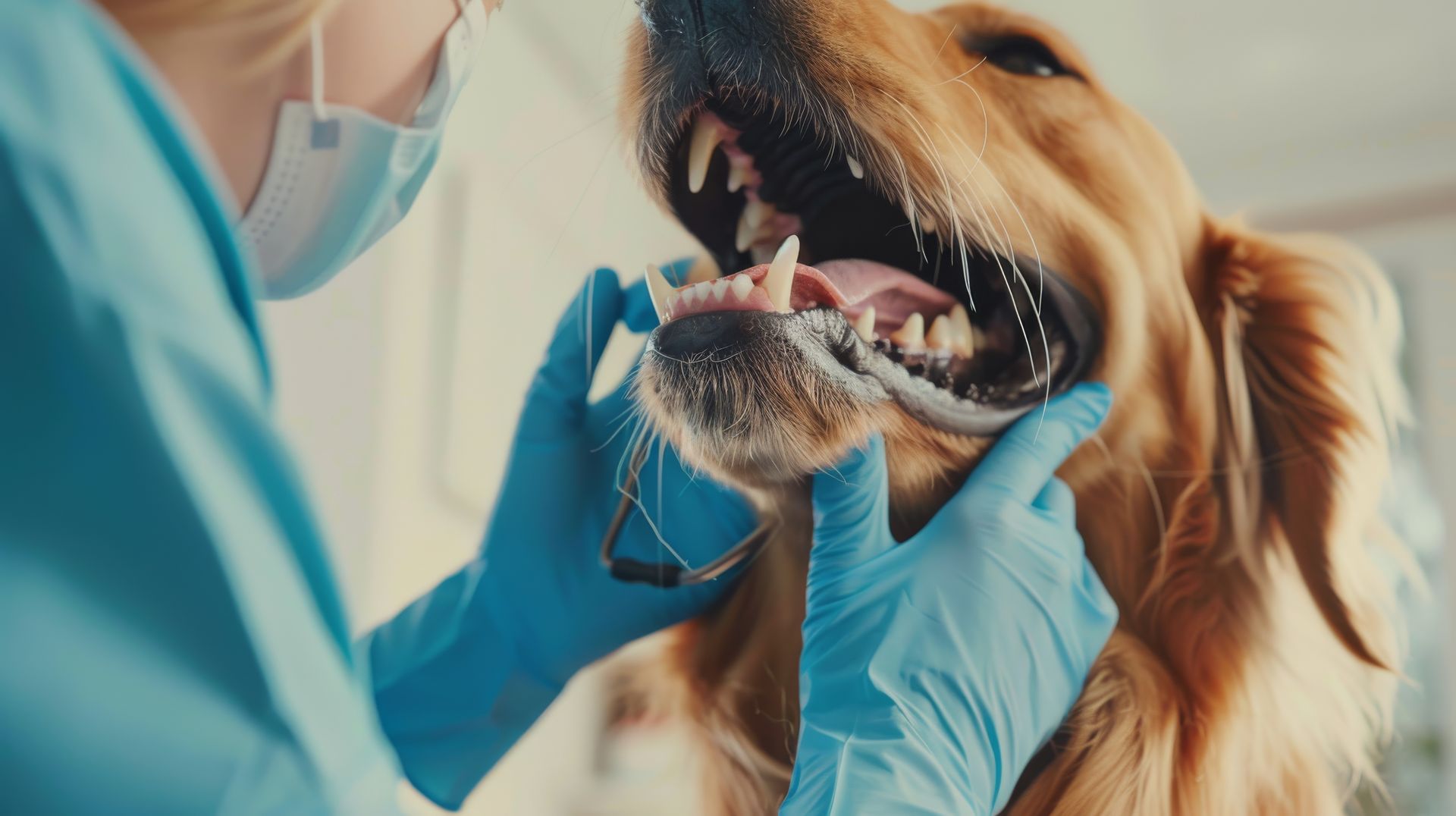Pet Vaccine Safety and Myths: Straight Talk for Lewisville Pet Parents
Key Points
- Vaccines are the safest and most effective way to protect your pet from deadly diseases
- Serious vaccine reactions are extremely rare - less than 1% of pets experience any side effects
- Indoor pets still need core vaccines due to legal requirements and indirect exposure risks
- Multiple vaccines at once don't overload your pet's immune system when properly scheduled
- Following the recommended vaccine schedule protects both your pet and the community
As a pet parent in Lewisville, you want what's best for your furry family member. But with so much information online, it's easy to feel confused about pet vaccines. At Castle Hill Animal Hospital, we hear questions and concerns about vaccine safety every day. Let's set the record straight with facts, not fear.
Understanding Pet Vaccines: The Basics
Think of vaccines as your pet's training camp for their immune system. They teach your dog or cat's body how to recognize and fight off dangerous diseases before they strike. When your pet gets vaccinated, their immune system creates antibodies - like tiny soldiers that remember and attack specific threats.
Vaccines help teach your pet's immune system how to recognize and fight off disease-causing agents. They protect your pet against diseases and improve your pet's overall quality of life.
The science behind pet vaccines has come a long way. Modern vaccines go through extensive safety testing and are monitored continuously once they're approved for use.
Common Vaccine Myths - And The Truth
Myth #1: "Vaccines Are More Dangerous Than the Diseases"
The Truth: This couldn't be further from reality. When vaccines for pets (and people) are highly effective, the number of new cases of the disease becomes extremely low. You might hear more about vaccine side effects simply because the diseases they prevent have become so rare thanks to vaccination.
Diseases like rabies, parvovirus, and distemper can be fatal. Vaccines give your pet a fighting chance against these killers with minimal risk.
Myth #2: "Vaccines Cause Long-Term Health Problems"
The Truth: Modern vaccines undergo rigorous testing and monitoring. Serious long-term health effects from vaccines are extremely rare. The vaccines we use today are safer than ever, with reaction rates declining by about half over the last 15 years. Any potential risks are far outweighed by the protection vaccines provide against deadly diseases like rabies, parvovirus, and distemper.
Myth #3: "Too Many Vaccines at Once Will Overwhelm My Pet"
The Truth: Your pet's immune system is incredibly capable. There is no credible scientific evidence that properly scheduled vaccinations compromise a dog's immune system. Instead, they help build a robust defence against various dangerous pathogens.
Veterinarians carefully design vaccine schedules based on your pet's age, health, and lifestyle. These schedules are backed by decades of research to ensure maximum protection with minimal stress on your pet's system.
Myth #4: "If My Pet Stays Inside, Vaccines Aren’t Necessary"
The Truth: Even your couch potato cat or yard-only dog needs protection. Here's why:
- Legal Requirements: Most states, including Texas, require rabies vaccines for all dogs and cats, indoor or outdoor
- Indirect Exposure: You can bring viruses home on your shoes, clothes, or hands
- Escape Risks: Even indoor pets sometimes get out accidentally
- Emergency Situations: Boarding facilities, emergency vets, and groomers require current vaccines
Many dangerous pathogens, like canine parvovirus, can survive in the environment for up to four years. Even if your dog stays indoors, these viruses can still be present on your shoes, in your backyard, or brought into your home by other pets or humans who have been outdoors.
Myth #5: "Vaccines Make Pets Sick"
The Truth: Vaccines are very safe, and the protection they provide far outweighs the risks. Over the last 15 years, reaction rates have actually dropped by about half.
For cats, fewer than 1 in 200 (0.52%) experience any kind of reaction within 30 days. The most common ones, like mild tiredness, a small appetite dip, a slight fever, or a little swelling at the injection sit, are usually temporary and clear up quickly.
Most pets experience no side effects at all. When side effects do occur, they're usually mild and short-lived, like feeling a bit tired for a day.
Core vs. Non-Core Vaccines: What does your pet really need?
Core Vaccines (Required for All Pets)
For Dogs:
- Rabies
- DHPP (Distemper, Hepatitis, Parvovirus, Parainfluenza)
For Cats:
- Rabies
- FVRCP (Feline Viral Rhinotracheitis, Calicivirus, Panleukopenia)
Non-Core Vaccines (Based on Lifestyle)
These are recommended based on your pet's specific risk factors:
For Dogs:
- Bordetella (kennel cough): Recommended for dogs who are social and spend time at the groomer, daycare, or boarding facilities.
- Lyme disease: Important for dogs who spend time outdoors in areas where ticks are common.
- Canine influenza: Best for dogs who are frequently around other dogs, such as in daycare or boarding.
For Cats:
- Feline leukemia - for outdoor cats or multi-cat households
Puppy and Kitten Vaccine Schedules: Getting Started Right
Puppy Schedule
For puppy vaccines to provide necessary protection, they're given every two to four weeks until a puppy is at least 16 weeks old.
- 6-8 weeks: First DHPP
- 10-12 weeks: Second DHPP + first rabies
- 14-16 weeks: Third DHPP
- Annual boosters: As recommended by your vet
Kitten Schedule
Kittens start their core vaccines around 6–8 weeks old, with boosters given every 3–4 weeks until they’re about 16–20 weeks.
- 6-8 weeks: First FVRCP
- 10-12 weeks: Second FVRCP + optional FeLV test and vaccine
- 14-16 weeks: Third FVRCP + rabies
- Annual boosters: As recommended by your vet
Why Timing Matters
Vaccines work best when they’re given as a series of injections at the right intervals. That’s why it’s important to stay on schedule with your kitten’s vaccinations—and the same goes for puppies, too.
Young animals receive some protection from their mother's milk, but this protection fades over time. The vaccine series ensures there are no gaps in protection as maternal antibodies decrease.
The Real Risks of Skipping Vaccines
Recent studies show concerning trends. About 6 in 10 veterinarians say that more pet owners are turning down rabies shots or other core vaccinations for pets after the COVID-19 pandemic.
The consequences are real:
- Unvaccinated pets face higher risks of serious illness and death
- Disease outbreaks can occur in pet populations
- Legal consequences for unvaccinated pets involved in bite incidents
- Higher veterinary costs when preventable diseases strike
What to Expect at Your Pet’s Vaccine Visit
When you bring your pet to Castle Hill Animal Hospital for vaccines, here’s what you can expect:
- Health check: First, we’ll give your pet a quick exam to make sure they’re healthy enough for their vaccines.
- Conversation: We’ll talk with you about your pet’s lifestyle and recommend the vaccines that make the most sense.
- Vaccines: The shots themselves are quick, gentle, and over before your pet knows it.
- Aftercare: We keep an eye out for any immediate reactions—though these are extremely rare.
- Planning ahead: Before you leave, we’ll schedule the next visit and send you reminders so you don’t have to keep track alone.
Signs to Watch For After Vaccination
While serious reactions are rare, contact us if you notice:
- Difficulty breathing
- Facial swelling
- Severe vomiting or diarrhea
- Collapse or severe lethargy
Mild soreness at the injection site or slight fatigue for 24-48 hours is normal.
FAQs About Pet Vaccine Safety
How long do vaccines last?
Most adult pet vaccines provide protection for 1-3 years, depending on the specific vaccine and your pet's health status.
Can I space out vaccines to reduce side effects?
It’s best to stick with the schedule your veterinarian recommends. Spacing vaccines too far apart may leave your pet unprotected and at risk for serious illnesses. The good news is that most pets handle vaccines very well, and side effects, if they happen at all, are usually mild and short-lived.
Are vaccines required by law in Texas?
Yes, rabies vaccines are required by law for dogs and cats in Texas, regardless of whether they live indoors or outdoors.
What if my pet has a chronic health condition?
We'll work with you to create a safe vaccination plan. Some pets with certain conditions may need modified schedules or alternative protection strategies.
Do senior pets still need vaccines?
Yes, older pets often have weaker immune systems and need continued protection. We may adjust the schedule based on their health status.
FAQs About Castle Hill Animal Hospital
What services does Castle Hill Animal Hospital provide?
We offer comprehensive veterinary care including wellness exams, vaccinations, dental care, surgery, and emergency services for dogs and cats in Lewisville and surrounding areas.
Do you offer payment plans for vaccines?
Yes, we work with pet parents to make healthcare affordable. Contact us at (469) 962-2060 to discuss payment options.
How do I schedule a vaccination appointment?
Call us at (469) 962-2060 or visit us at 3964 TX-121, Suite #100, Lewisville, TX 75056. We'll help you create the right vaccination schedule for your pet.
What areas do you serve?
We proudly serve pet families in Lewisville, Flower Mound, Highland Village, The Colony, and surrounding North Texas communities.
Do you provide vaccine reminders?
Absolutely! We send reminder calls and emails so you never miss an important vaccination date.
Making the Right Choice for Your Pet
At Castle Hill Animal Hospital, we know how much your pets mean to you. Vaccines aren’t about checking off a list—they’re about keeping your best friend healthy and by your side for as many years as possible.
If you ever wonder about a vaccine, ask. Your vet will gladly walk you through the pros and cons, and we’re always here to answer questions or talk through any worries you might have.
Take Action Today
Give your pet the gift of protection with a thoughtful vaccination plan. At Castle Hill Animal Hospital in Lewisville, our team is here to guide you every step of the way, with compassion, care, and the expertise your pet deserves.
Ready to schedule? Call us at (469) 962-2060 or visit us at 3964 TX-121, Suite #100, Lewisville, TX 75056. Because when it comes to your pet's health, there's no substitute for professional care and proven protection.
Your pet depends on you for everything - including protection from preventable diseases. Let's work together to keep them healthy, happy, and by your side for years to come.

